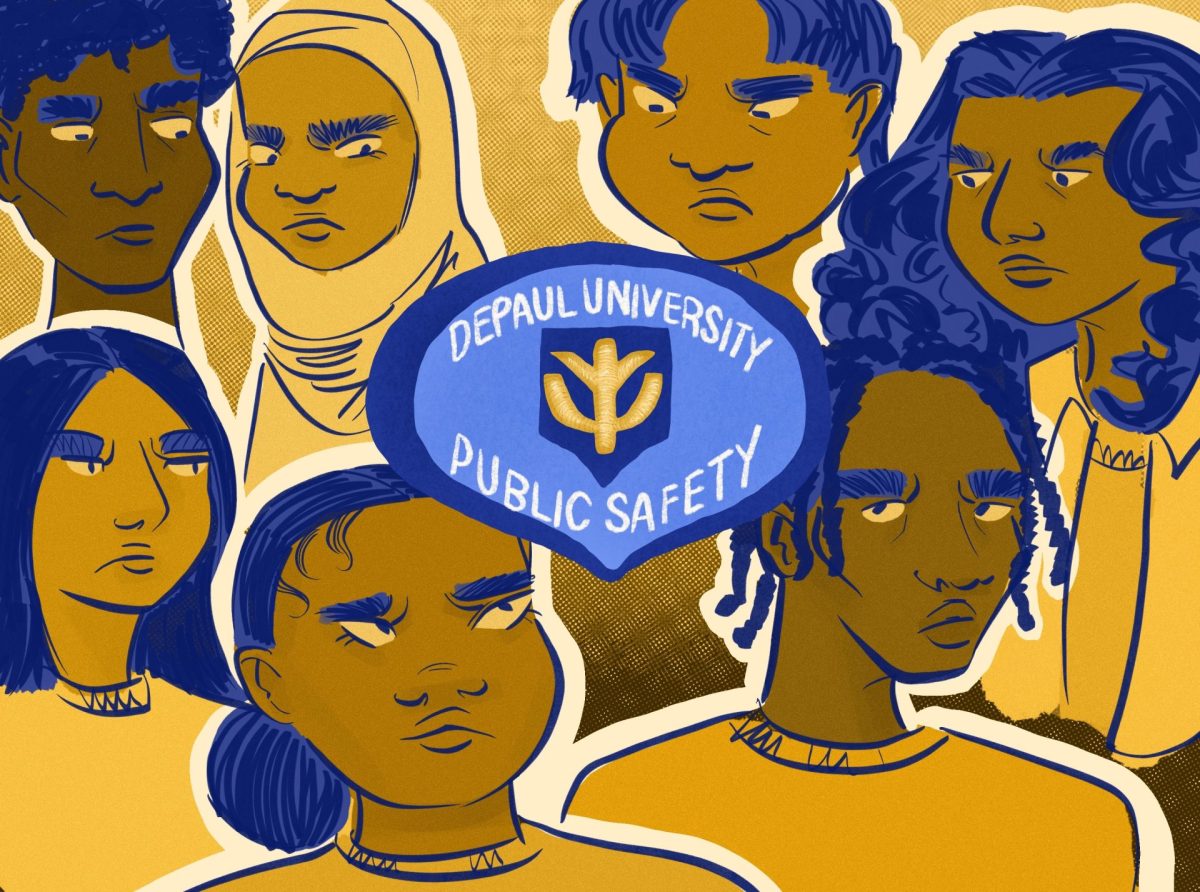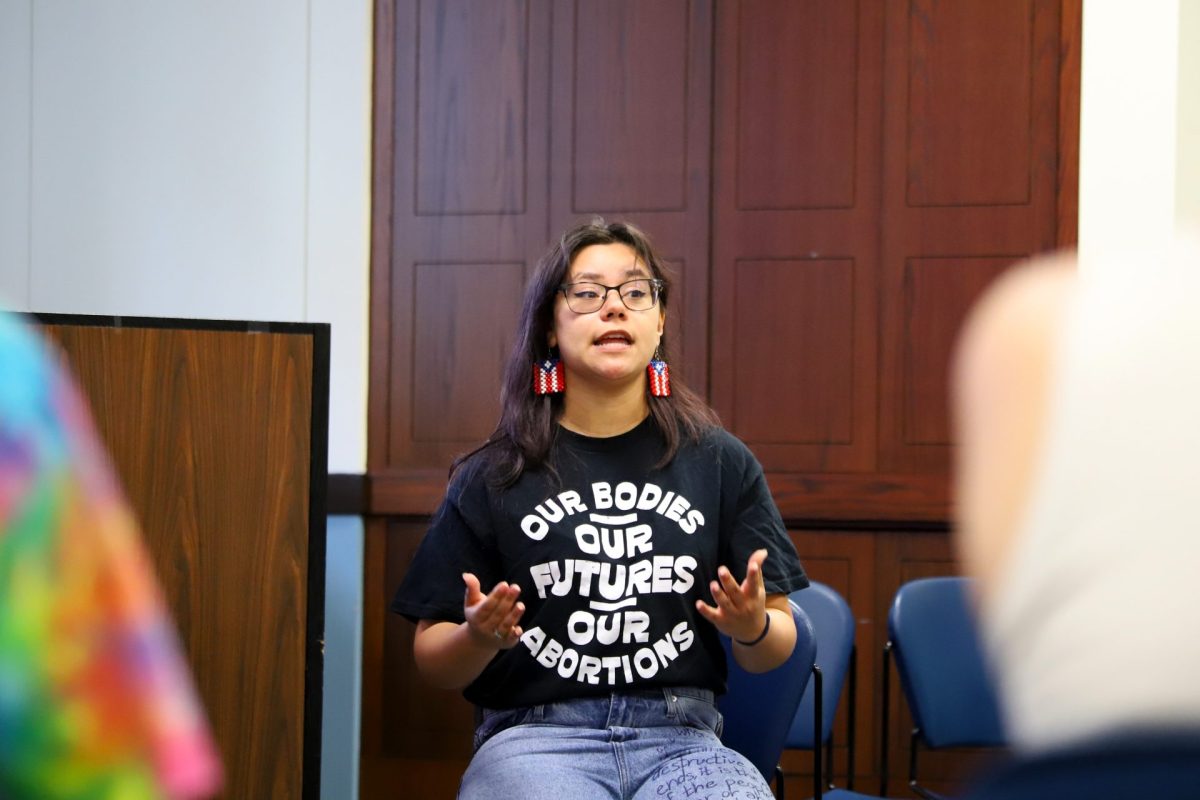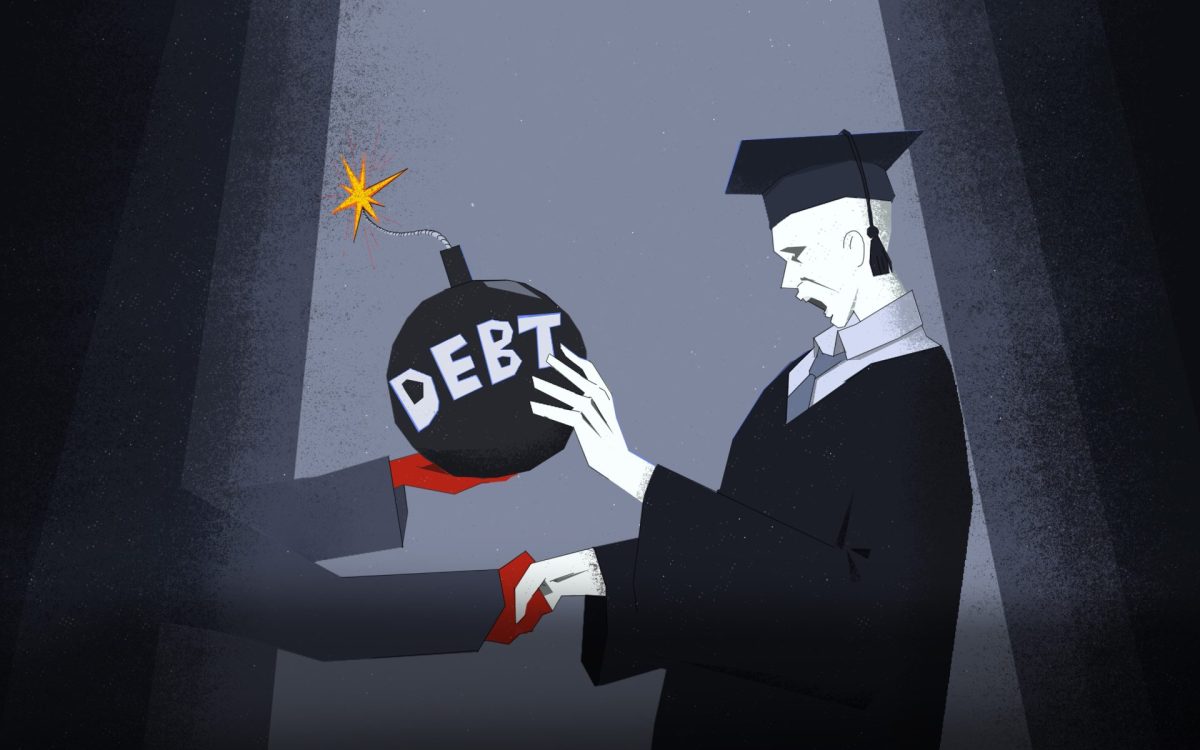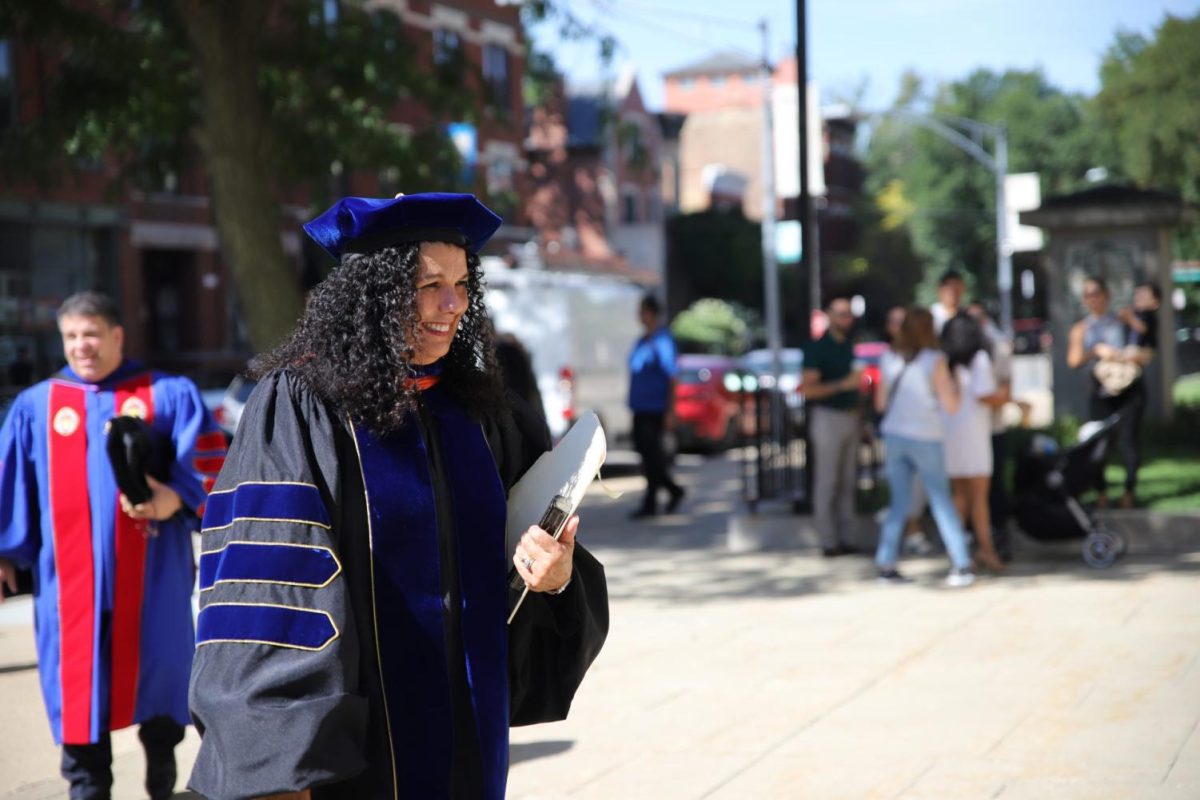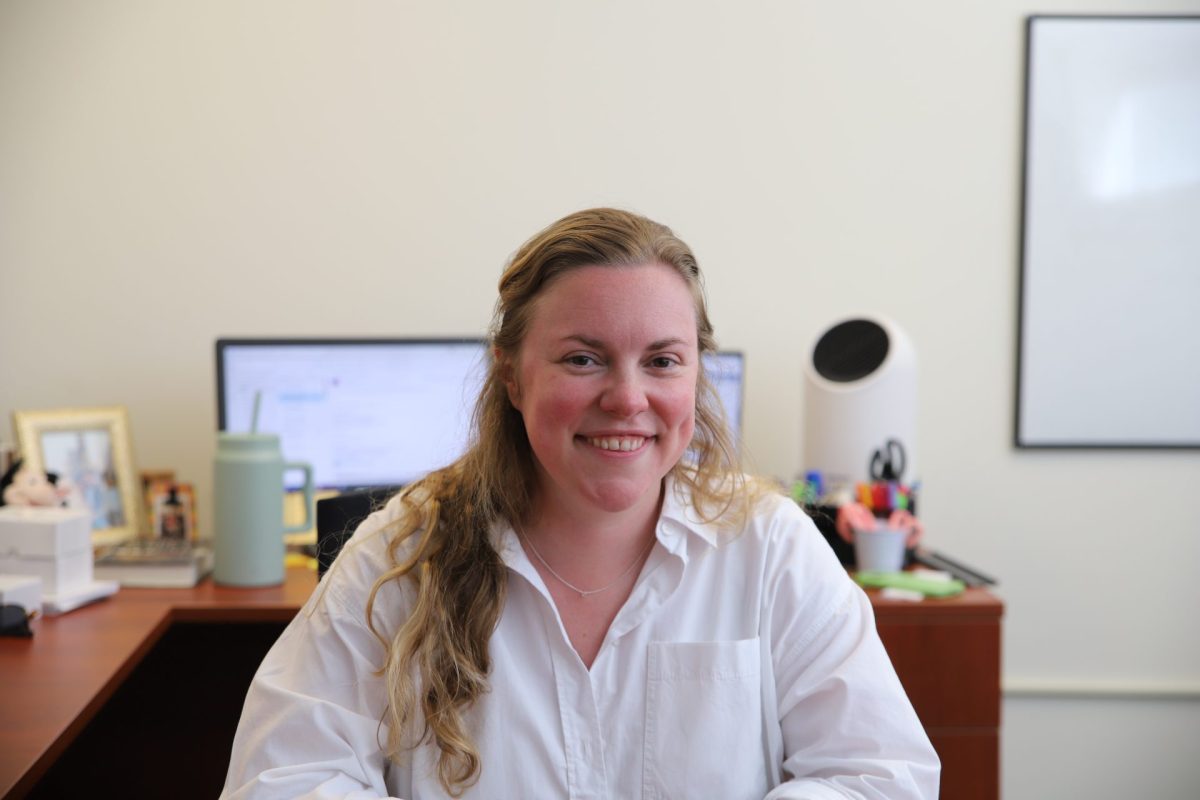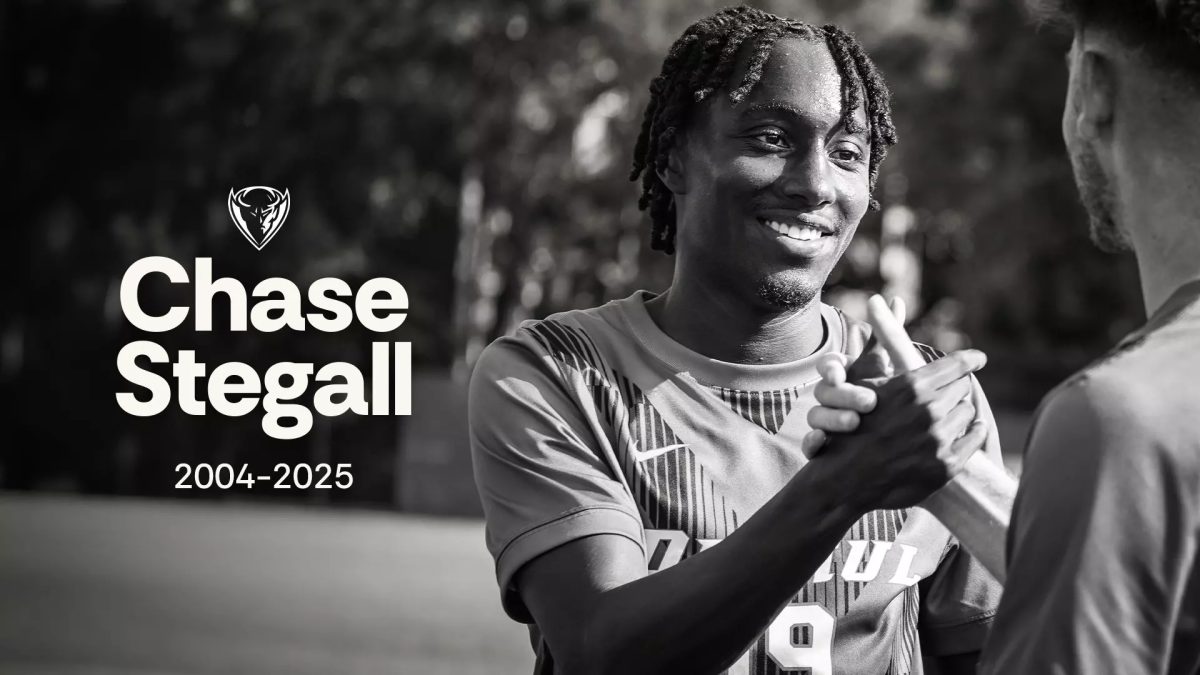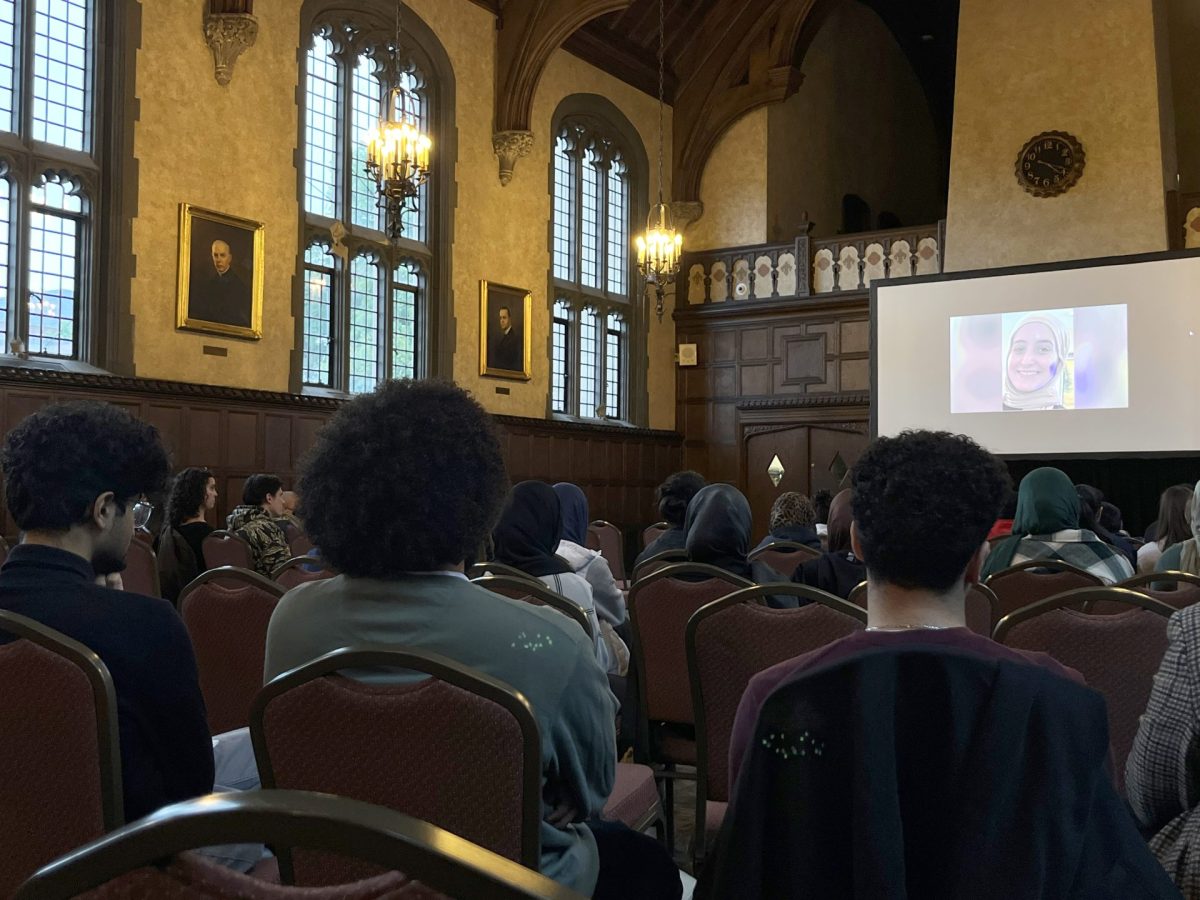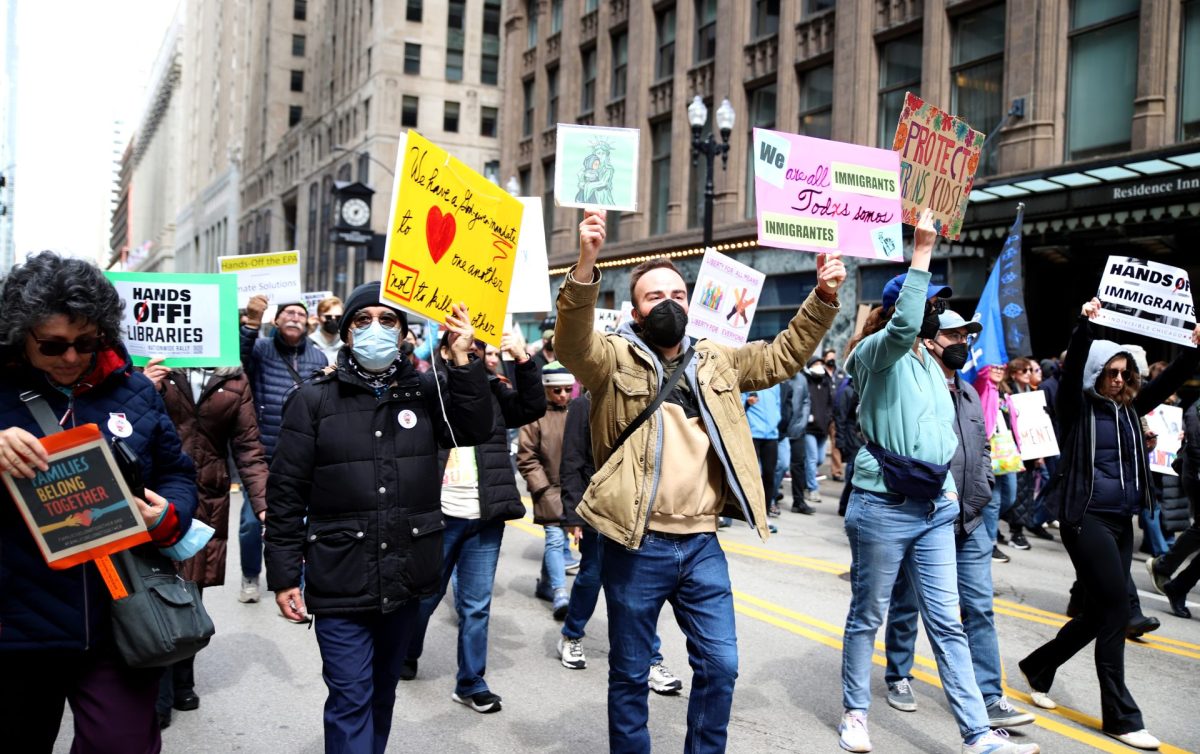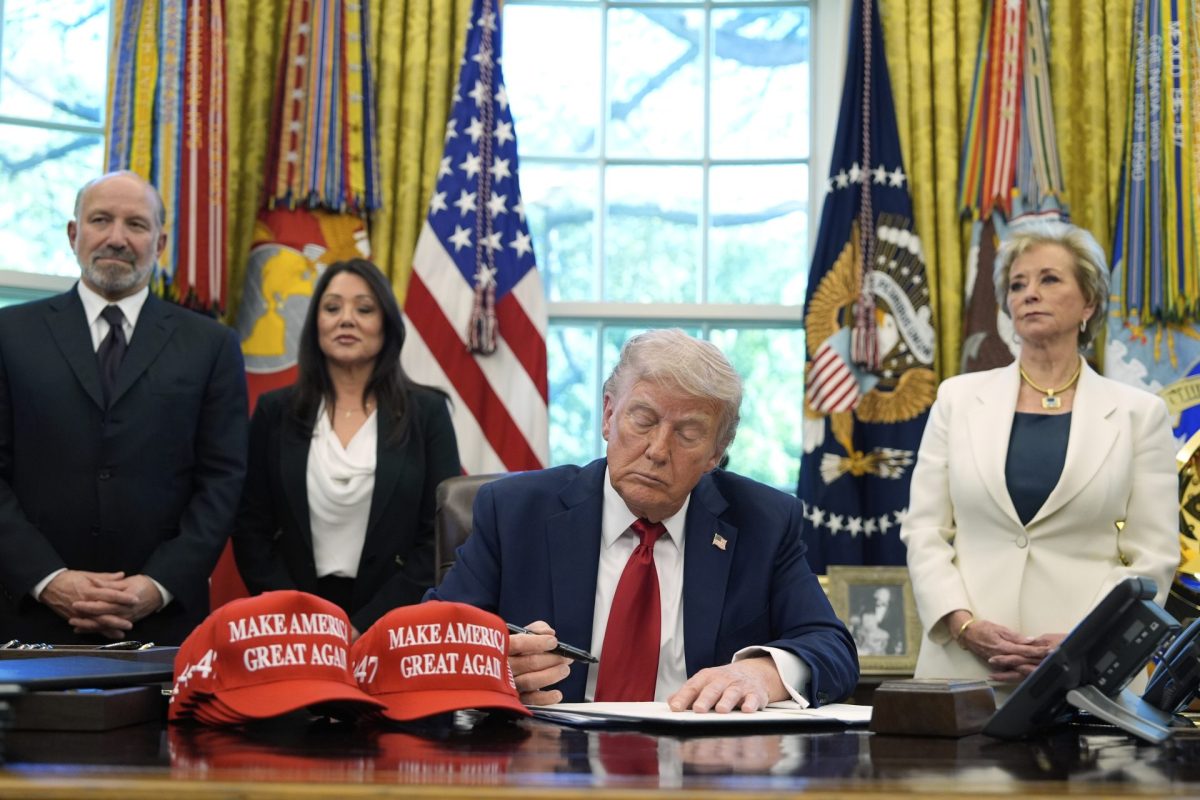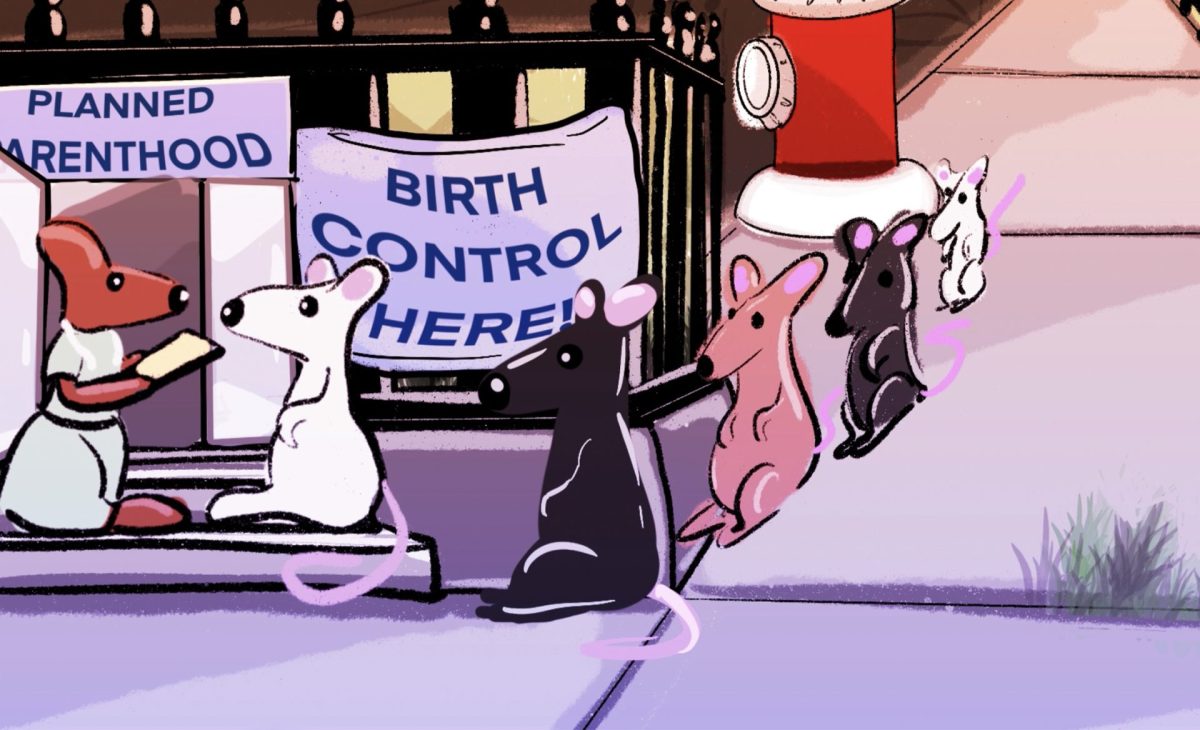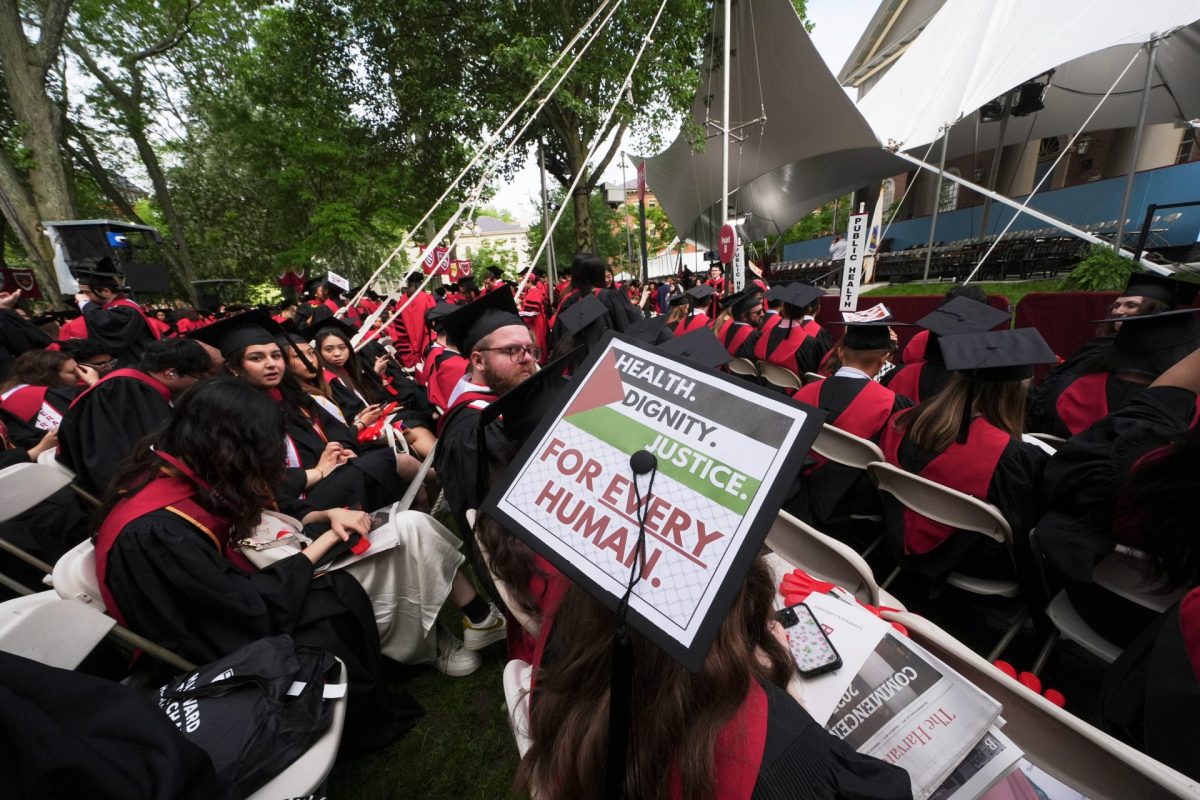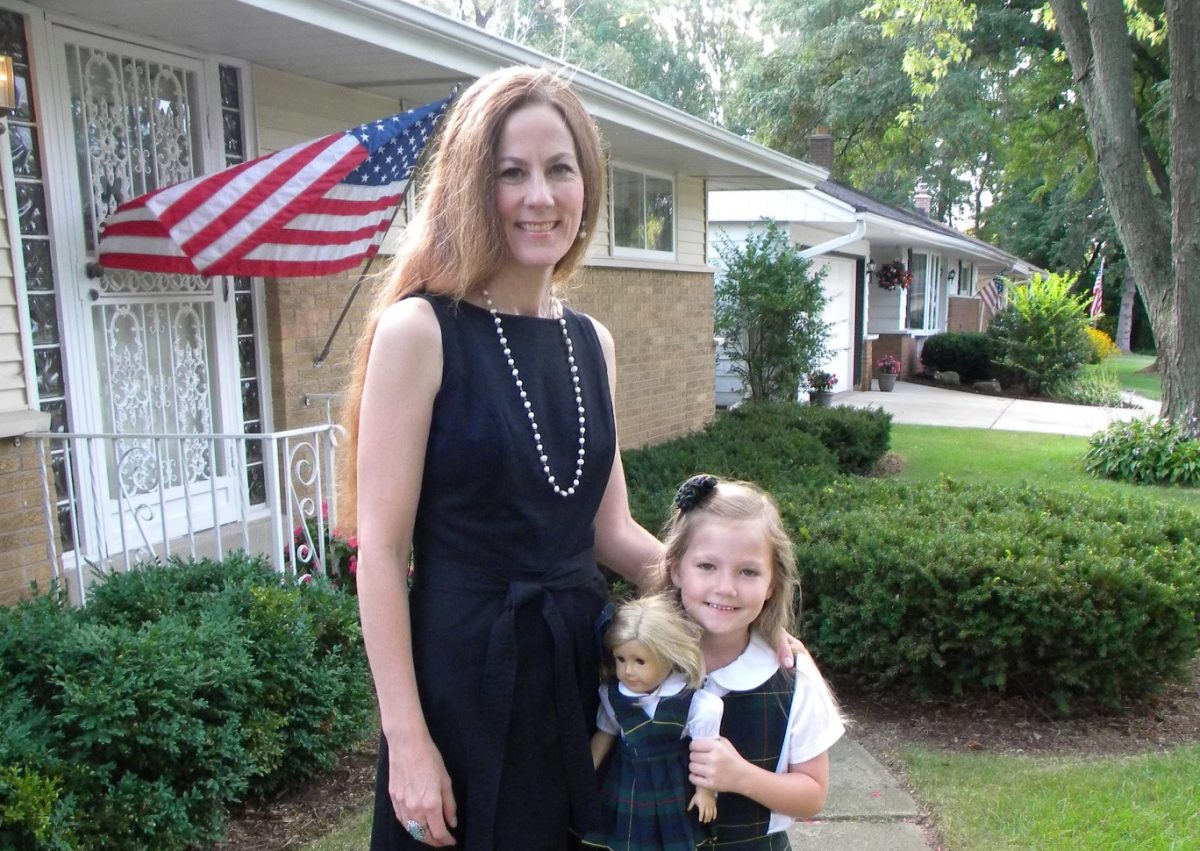DePaul President Robert Manuel’s absence at Monday night’s Inclusivity and Safety Town Hall left students outraged and disheartened, despite university leaders’ commitment to addressing concerns aired at the forum.
The town hall, hosted by the university’s four cultural centers, facilitated open dialogue between administration and students. Both students and faculty expressed apprehensions about potential racial profiling in light of the university’s recent ID policy.
Students say the revised protocols could disproportionately affect students of color, transgender students whose appearance or name differed from their IDs and students with disabilities who couldn’t easily show their IDs, barring access to educational resources.
“My stress level has been off the rails,” said Nana Ampofo, president of Students Against Incarceration. “I work at the library, and that’s like one of the only places in the whole Lincoln Park campus that’s doing this ID check. Being in a space as a student worker and having to see people being denied access to education … is just heartbreaking.”
Nevertheless, Manuel’s absence at the town hall prompted students to question the significance of the discussion, as it raised doubts about the president’s commitment to listening and caring for their concerns.
“To a certain extent, this is a waste of time,” Black Student Union (BSU) president Mya Wraggs said of Manuel. “This kind of feels like a big ‘f— you’ because you say you’re for the people, but I don’t see you here. I’m not seeing you in this moment that has a good percentage of your students terrified, and that’s concerning.”
Vice president for Student Affairs Eugene Zdziarski said Manuel would have liked to attend the event but was out of town.
“The president’s message to us in this was that he is very interested in engaging with you on this topic and wants to have a follow-up session,” Zdziarski said.
In an Oct. 9 email, Manuel stated that he had been working alongside BSU to prevent instances of racial or ethnic profiling stemming from the updated protocols. However, according to Wraggs, the administration never contacted the group before or after the email was sent.
“The president’s office is in no way working with the Black Student Union,” Wraggs said. “No one from their office has reached out to us about any collaboration, and we are very shocked and offended by that lie. We found out about this fictional collaboration when the email was sent out.”
Manuel expressed remorse over his actions in an Oct. 11 email.
“I would like to sincerely apologize for a letter about campus safety that I released to the community on Monday, Oct. 9, stating that my office was working with the Black Student Union to design solutions around the new ID policies on campus. I am very sorry for this error and truly meant no harm,” Manuel said in the statement.
DePaul’s recent shift from an open campus, welcoming the campus community and the general public, to a limited access policy requiring proof of enrollment was driven by a concerning rise in robberies around the Lincoln Park campus.
The change followed a Sept. 25 email from the university announcing that starting Oct. 2, IDs would be required for upper floors of the DePaul Center, and public safety staff would receive sensitivity training.
José Perales, interim vice president of the Office of Institutional Diversity and Equity, reported that his office had mandated online DEI training for all public safety personnel in preparation for the ID requirements and is planning additional in-depth sessions with Public Safety soon.
“My role in being here is to listen to all of you and to see if I can put themes, the things that are really important [into a future training],” Perales said. “I heard concepts of racial profiling, the need to include trans students, individuals with disabilities and sometimes, when we consider these things, we first see them through a racial-ethnic filter. These other filters, we need to pay attention to as well.”
However, students like Ampofo expressed concerns that a week of DEI training may not be sufficient to address potentially racially charged incidents between public safety officers and students.
“If it’s an online module — as someone who has worked on campus and taken millions of modules — I can just easily skip it or put the volume down and go to the next room or take a call,” Ampofo said. “If [DEI] training takes time to implement, why have the ID checks already started?”
Perales emphasized the online modules acting as building blocks for public safety, gradually increasing officers’ awareness of unconscious bias, microaggression awareness, stereotype and prejudice reduction.
Still, some attendees remain unconvinced that officers would take the training seriously.
“Is their job dependent on passing this training?” said Robert Davis Jr., the director of community affairs & activism within BSU. “Because if they take it five, six, times and now they’re able to [complete it], are they really able to complete their jobs?”
Perales said established procedures exist to address breaches of protocol within Public Safety.
“Public Safety officers are subject to the university’s progressive discipline policy like all other staff members,” Perales said. “We expect all of them to participate in the DEI training.”
However, Valerie Johnson, associate provost for diversity, equity and inclusion, acknowledged students’ emotions and urged them not to interpret the university’s errors as a sign of negligence.
“I want you all to really disavow yourselves of any notion that we don’t care,” Johnson said. “Someone said we don’t always get it right and that’s very true. We are human, and we don’t always get it right. But please don’t ever think that we don’t care because we care deeply for you all.”



